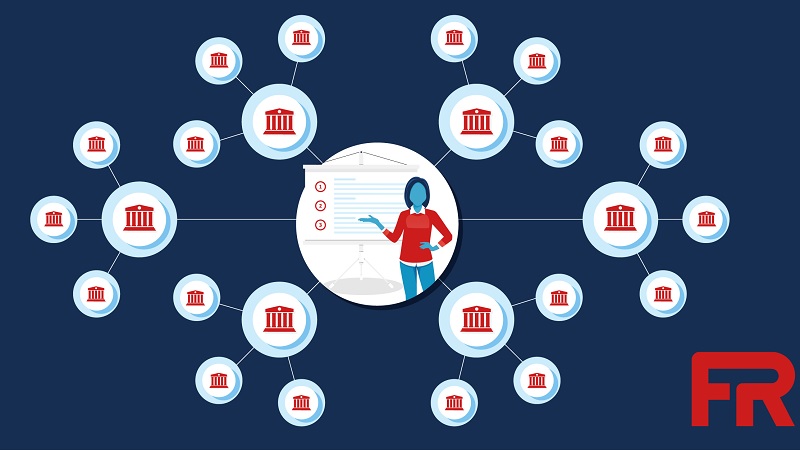
As COVID-19 created unprecedented demand for remote work, one Federal agency was especially well equipped to transition to full telework in March 2020. The civilian agency had invested in robust collaboration tools and IT infrastructure, including network bandwidth upgrades in January 2020, which eased the transition and kept workers productive.
The agency was already using high-quality live and on-demand videos to communicate with and train staff prior to the pandemic. With nearly all staff working remotely, communication needs increased and changed – and because of its existing investments, the agency was positioned to expand its use of video to provide information and connect employees.
Pandemic Increases Need for Video Communications
A customer of video services company Vbrick for the past 10 years, the agency had moved from Vbrick’s on-premises video platform, VEMS, to its cloud platform, Rev, in 2016. Rev is an industry leading cloud-based enterprise video platform, architected from the ground up as a cloud-native video solution and the only first-party electronic content delivery network (eCDN) on the market.
“The organization had used Rev to enable executives and department heads to securely communicate with large groups,” said Ben Coffinberger, senior customer success manager at Vbrick. “When the pandemic pushed the organization to full telework, video communications were more important than ever. They needed to update the entire staff about operations and plans for remote work, and they needed to facilitate routine, remote collaboration for everyone.”
The Rev platform enables agency videos to be created and viewed anywhere in the world, leveraging the eCDN. The eCDN alleviates network bottlenecks in places where large groups of people concurrently access the same video, such as a headquarters or regional office; as well as bottlenecks associated with transmitting video over long distances. The eCCN shortens the distance between the origination point and end user by staggering the video stream through multiple server points, getting the stream to the last mile without compromising video quality.
“The content delivery network allows people all across the globe to watch the stream in real time without forcing them to access the stream from the origination point, wherever it might be,” Coffinberger noted.
Rev Platform Overcomes Videoconferencing Solution Limitations
Rev integrates with videoconferencing solutions, such as Microsoft Teams, Cisco Webex, and Zoom, and joins broadcasts as a participant. From there, Rev captures a mirror image of the broadcast and simultaneously streams it to attendees. For participants, the experience doesn’t change with Rev – they click to access broadcasts just as they normally would.
Rev enables organizations to overcome the user limitations of videoconferencing services, which typically cap the number of participants at about 1,000. It can broadcast to 50,000 people or more. Rev also eliminates a common videoconferencing challenge – whether with 50 participants or 5,000 – viewer disruption.
“On large calls, people forget to mute, they can interrupt, and it can become chaotic,” Coffinberger said. “With Rev, people can watch the stream, type questions, comment, and react, but they can’t unmute their microphone. This greatly improves efficiency and communication clarity.”
The agency uses Rev to broadcast executive announcements, podcasts, live events, and on-demand videos to the entire organization, specific departments, or external audiences. Agency departments currently using Rev include operations, technology, corporate messaging, human resources, executive leadership, and marketing.
Rev Helps Meet Security, Accessibility, and Compliance Requirements
A top priority for the agency was a video platform that could secure content in a variety of ways. For example, the agency uses Rev to:
- Facilitate approval processes before publishing videos
- Ensure specific videos are available only to certain agency personnel
- Prevent downloading, sharing, and other security risks
When the agency first adopted Vbrick technology for enterprise video, the on-premises VEMS solution helped ensure security for executive communications, said Todd Walker, pre-sales engineer at Vbrick. “FedRAMP authorization was fundamental to adoption of Rev, as it helped them transition to the cloud safely,” he noted.
The agency also needed a video platform that would enable it to meet accessibility requirements efficiently. Prior to the Rev platform integration, closed captioning at the agency was a manual process. A transcriptionist would type while viewing the video live and a second individual would then code the text for closed captioning. Rev enabled the organization to offer automatic transcriptions in upwards of 60 languages. The video broadcaster can preselect language options, thus ensuring that every viewer can accurately comprehend the information at the click of a button.
“We are expecting to offer audio translation as early as this year,” Coffinberger said. “For example, I could be talking in English, and a French speaking audience member would be able to select: ‘I want to hear this video in French.’ At that point, the audio would automatically translate into French.”
The agency also needed a platform that could provide data analytics. Rev enables managers to track video views to ensure that employees watch compliance and security content in a timely manner. The platform provides data including viewership, pausing, skipping, and transitions between devices. In addition, for livestream events, the platform catalogues web browsers in use, as well as buffering data, helping producers ensure a positive end-user experience.
Video Use Sees Big Boost
No doubt, the agency’s investment in video communications supported its move to full telework and enabled a dramatic increase in its video use in 2020. Live events increased 64 percent, from 82 to 129, and hours of on-demand content viewed increased 53 percent, from 626,119 to 1,173,891.
